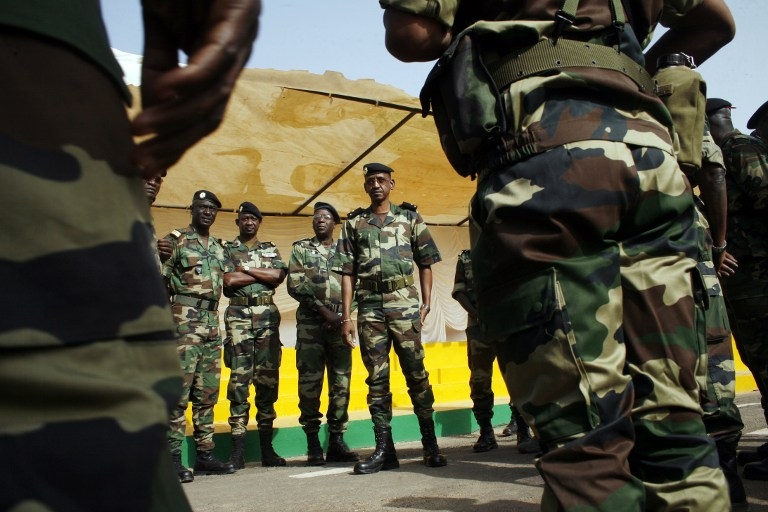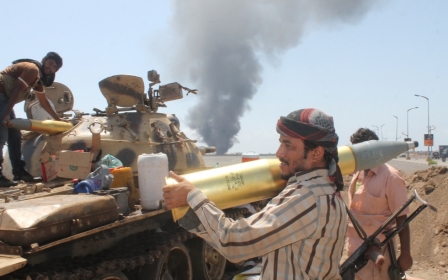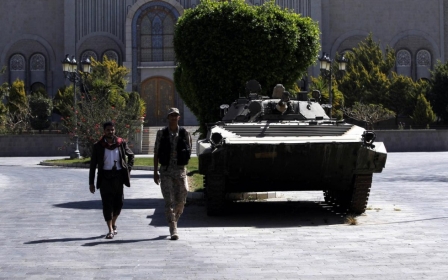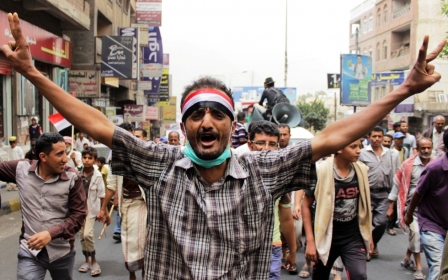ANALYSIS: Petrodollars behind Senegal's support for Saudi in Yemen

Senegal says it is sending troops to Saudi Arabia in an act of "solidarity" for the kingdom's Yemen operation, but critics say the support has more to do with cold, hard cash.
Unlike the other African countries that have offered back-up, Senegal is not in the Arab League, and its only military experience in the region was a deployment to the Gulf after Iraq's invasion of Kuwait 25 years ago.
The Institute for Security Studies think tank pointed in a recent analysis to a strong hint of a "mercenary motive" in Dakar's support, and similar offers of help by Morocco and Sudan.
Senegal has rejected the suggestion, however, pointing to its contribution to United Nations peacekeeping forces elsewhere.
"Did we go into Mali for petrodollars?" government spokesman Oumar Youm said in a statement to AFP reacting to the accusation.
A Saudi-led coalition launched air strikes against Iran-backed Shiite Houthi rebels and their allies on 26 March after they seized control of large parts of Yemen and advanced on the main southern city of Aden.
Senegalese Foreign Minister Mankeur Ndiaye announced last week the country was sending 2,100 soldiers to join the force at the request of Saudi King Salman.
He did not specify when the troops would be deployed, but remarked that Riyadh had asked Dakar to contribute to the coalition at the beginning of April.
A collective of activist groups in Dakar had planned to march on Wednesday against the deployment but organisers say the demonstration was banned.
Malick Noel Seck, one of the campaigners, accused the government of "making Senegalese soldiers play the same role as the tirailleurs" - a term for infantry conscripted in the French colonies in the 19th and 20th centuries.
'Suitcases stuffed with cash'
Critics have suggested that the government might be acting in the hope of financial reciprocation from oil-rich Saudi Arabia, the largest economy in the Middle East.
Observers say President Macky Sall, elected in 2012 and hoping for a second term, is banking on the success of his Emerging Senegal Plan (ESP) - a raft of infrastructure, agriculture, tourism and education improvements.
But the head of state is under growing pressure to come up with funding for the project, which is expected to cost $16.8 billion (14.8 billion euros) by its completion in 2035.
Fadel Barro, a leader of the pro-democracy movement "Enough Is Enough", said the government was aware that it needed to get hold of "money that does not stink" - or funding untainted by its origins.
"Saudi Arabia is one of the few places in the world you can go to and return with suitcases stuffed with cash," political analyst Babacar Justin Ndiay told AFP.
Western institutions and countries approached to fund the ESP have shown themselves to be "meticulous and finicky" when it comes to disbursing cash, said Ndiaye.
Underlining the problem, the International Monetary Fund has urged Dakar to take better control of its public wage bill and broaden its tax base to fund the ESP.
Sall first raised the prospect of sending troops to Saudi Arabia, a country high on the list of donors to the ESP, in April, according to government documents viewed by AFP.
'Threat to Islamic holy sites'
The files show that ESP funding requests to Riyadh will reach $216 million this year while Sall revealed that the Saudi-based Islamic Development Bank "holds the largest portfolio of commitments to the ESP", without elaborating.
In a message read to parliament on 4 May, Sall described the deployment as an "act of solidarity and gratitude to a friendly country".
Riyadh is a long-time ally and a traditional donor in Senegal, where the Saudi Development Fund (SDF) has paid for numerous projects, including roads, hotels, health and agriculture.
Dakar's new airport, funded by the state and foreign donors including the IDB and the SDF and scheduled to open late this year, is being built by the Saudi Bin Laden Group.
But Sall emphasised in his message the religious dimension of Senegal's support, "to deal with the threat to the territorial integrity of Saudi Arabia and the Islamic holy sites to which the kingdom is home".
Meanwhile Mbaye Niang, an Islamic cleric and lawmaker, said the Senegalese did not need to fear they were about to see a rise in Wahhabism, a fundamentalist branch of Sunni Islam prevalent in Saudi society.
"Wahhabism doesn't have a strong influence in Senegal because of the brotherhood of Islam. And the Saudis are not putting Wahhabism front and centre in our relations."
New MEE newsletter: Jerusalem Dispatch
Sign up to get the latest insights and analysis on Israel-Palestine, alongside Turkey Unpacked and other MEE newsletters
Middle East Eye delivers independent and unrivalled coverage and analysis of the Middle East, North Africa and beyond. To learn more about republishing this content and the associated fees, please fill out this form. More about MEE can be found here.




